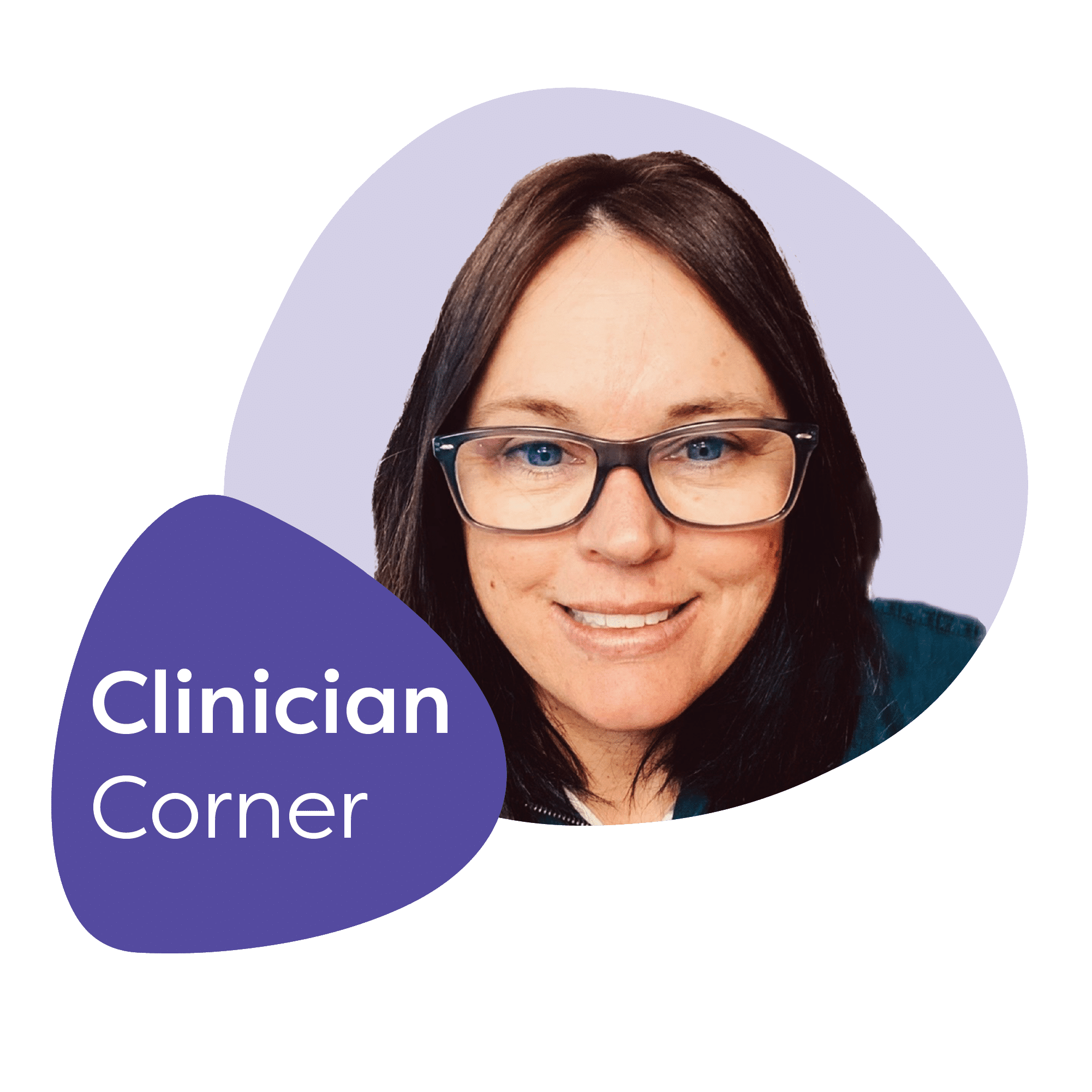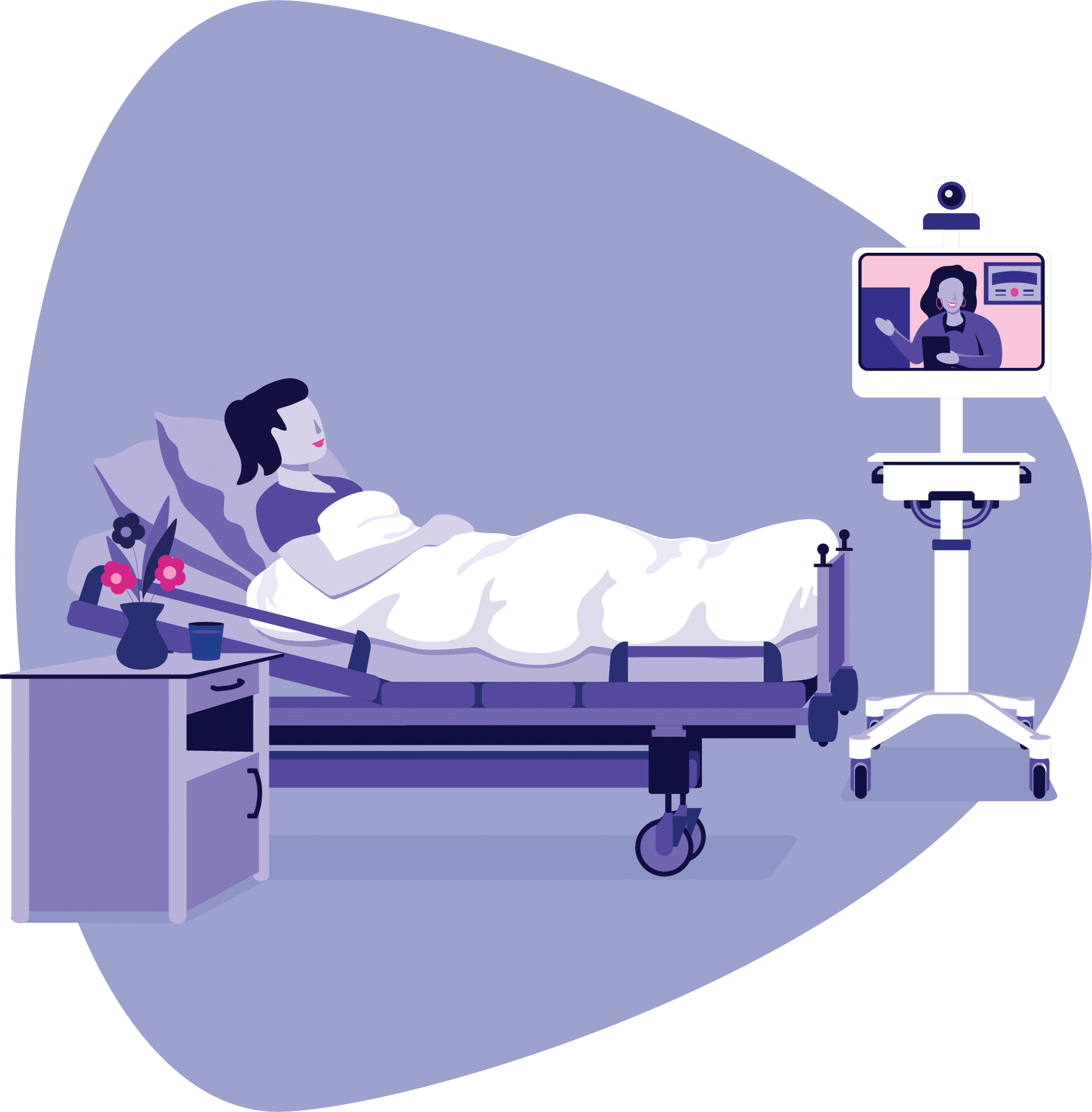Iris clinicians are at the heart of what makes our organization such a special place to work. That’s why we’re turning the spotlight on the amazing work they’re doing every day. This month, we’re sitting down to talk with Betty Bell, one of our incredible LCSWs.
Q. How did you find Iris and decide you wanted to be an Iris provider?
A. It was about three years ago when I moved to Minnesota. I was flipping through the internet, saw a job opportunity, and applied for it. I didn’t think I’d like telehealth because I liked the in-person connection. However, I did a lot of research and saw that telehealth is just as effective as in-person care, especially with some of the modalities I use in therapy. I decided to try it, and I really like it.
Q. How does teletherapy compare to in-person care?
A. I specialize in trauma. I work with a lot of individuals that have trauma, and EMDR has been very effective. I researched before I took the job because I wanted to make sure I could serve the clients I work with, and the research said it was effective.
I use bilateral music stimulations instead of tapping or other devices that can be used in this treatment. Those have been effective. Patients have been able to use those outside of sessions as well. It’s light music with bilateral stimulations in it, which helps them process.
Telehealth is an asset, especially when patients live in a city where they struggle with transportation or stay home with their kids. They don’t have to load up the children and then drop them off at daycare or go to therapy. They’re able to get services right within their home.
A lot of times when I work with people, that’s their safe place. That’s where they feel comfortable.
I think telehealth creates fewer barriers for them to get therapy versus in-person – in-person takes gas to get there and pre-scheduling – telehealth saves a lot of time out of the patient’s day.
Q. How do you foster connection with patients virtually?
A. I firmly believe that building rapport right out of the gate is key in therapy. As we’re talking and communicating, if there’s anything that the patient’s not feeling comfortable with or they don’t think we have a connection, I ask them to let me know right away so we can connect them to someone they connect with.
Because a lot of times in therapy, if you don’t have that rapport and connection, it’s not going to be as effective. We usually talk about that right away. I haven’t had anyone that didn’t like that approach. I meet them where they’re at, start with a basic conversation, and then build a connection that way. And then things lead into more details of the things they’re experiencing.
Q. As a healthcare professional, how do you manage work-life balance?
A. I’m in my later forties, and I remember being a social worker in my twenties, where stress was more impactful. What I’m finding as I am older is that therapy is my passion. It doesn’t feel like work. It’s my calling – it’s what I’ve chosen to do.
A lot of the times, with the people we serve, if they cross my mind outside the session, I’ll send them positive vibes, healing, or great thoughts. But I don’t take a lot of work home. I also exercise, get massages, and do a lot of self-care outside of the session, which also helps. It makes a difference when this work is what you’re called to do.
Q. What is the most rewarding part of your job?
A. I had a client who crossed my mind, and I couldn’t remember her name. Sometimes, it gets tricky, and suddenly, her name crosses my mind. Two weeks later, she messaged me. I didn’t have her contact information, but she remembered my number. That was pretty cool.
I got to ask, “Hey, how are you?” “Are you still in this location?” “How are the kids?” We briefly touched base, and she’s doing well.
She’s stayed in the community for three years. She is working, and her sons seem to be thriving. Before, they were struggling with homelessness. She struggled with addiction issues, and her mental health was pretty poor.
The power of connection is really what therapy is all about. So, having a patient cross your mind and then suddenly they find you and reach out. That was amazing to me.
Q. What do you love about working with Iris?
A. Iris has created a platform where you’re connected to an agency where there’s a connection. That’s powerful. I adore the agency that I’m placed with. It’s in a different state, and they have a different community, and I really embrace that and enjoy that.
I’ve worked with Iris for about two and a half years and have all the support I need. My supervisor’s a phone call, text, or message away. We meet on a regular basis. I get all the training I need.
I can’t say enough about my connection with the agency where they placed me. I adore my supervisor there. They’re so supportive and appreciative. She often just says, “I appreciate you,” and I’ll tell you, that goes miles.
I wouldn’t really work for Iris or even the agency I was placed with if I didn’t have those connections and that support and that extra training. I’ve been really pleased with even the environment. It’s been very positive, not negative. It’s really a great place to work. I’ve been very pleased.
Q. Why do you think teletherapy is important to the future of mental healthcare?
A. COVID-19 brought a lot of good things, even though it was a difficult time as well. Telehealth became even more important during that time when people were isolated.
They couldn’t connect to services they probably needed. I think it opened a window for therapists.
I think telehealth is here to stay. The way you can network between states – you can be in one state and be licensed to provide care in another state – the connections you can make are so powerful.
When I talk to some of my clients, the chances of us meeting are like zero, but we get to be a part of each other’s journey and experience. Telehealth has opened a vast area for not only our clients, but for our professionals. It’s pretty exciting to watch.
Q. What advice would you give someone new to telehealth?
A. Embrace it and roll with the process. At first, I remember I was kind of nervous. Like, “Am I going to be able to keep up with the computer or network? It just seems like everything fell into place and I always had IT support.
They’re always a phone call away, and even sometimes the clients will get maybe anxious, like, “I can’t hear you very well,” so we’ll adjust or maneuver things. But again, it’s just part of the process.
So just embracing it and working with whatever obstacles may come. I think that you’re going to be able to see the fruition as you continue to just be relaxed and follow the process. I’m sold on it.
At Iris, we believe our providers should be respected, valued, and applauded for the work they do, and we couldn’t be more proud to say, “thank you” to our very own Betty Bell. If you’d like to learn more about working for Iris Telehealth, contact us today.



